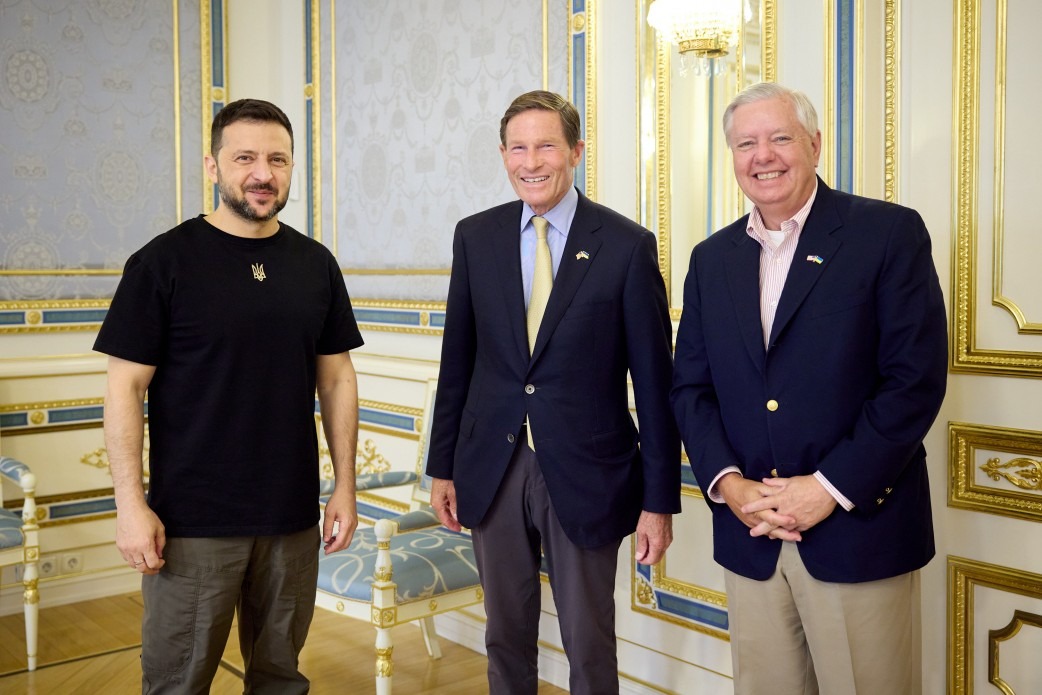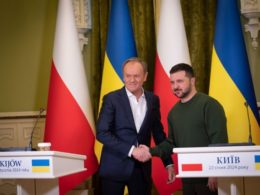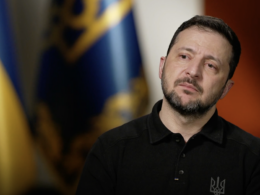On 14 February, Senator Lindsey Graham, during the Munich Security Conference, stated that Ukraine should be admitted to NATO if Russia launches another attack after a potential ceasefire or the peace agreement that stipulates the end of the war, according to Censor.NET.
The 61st Munich Security Conference has opened today, bringing together over 60 heads of state and more than 100 ministers for three days of security talks in Germany. The event is poised to be pivotal for global security discussions, particularly in the context of ongoing negotiations surrounding the war in Ukraine. With key figures such as Ukraine's President Volodymyr Zelenskyy and US Vice President JD Vance in attendance, expectations are high for significant dialogues that could shape future peace talks and, eventually, Europe's security landscape.
Graham said that in case of another offensive on Ukraine, other NATO members should take responsibility for Kyiv's defense. He claimed that he is personally not against Ukraine joining the Alliance. However, if that is not possible now, then its accession must be guaranteed in the event of a new Russian aggression.
Meanwhile, Ukrainian President Volodymyr Zelenskyy noted that neither the current nor the previous US administration had ever discussed the possibility of Ukraine joining NATO with him.
He added that if membership in the Alliance is not achievable at this time, Ukraine must expand its army to 1.5 million troops. Zelenskyy also reminded that a plan for deploying foreign forces in Ukraine already exists, specifying locations and troop numbers.
Earlier, at the Ukraine Defense Contact Group meeting in Brussels, US Secretary of Defense Pete Hegseth called Ukraine’s NATO membership and restoration of its pre-2014 borders “unrealistic." He also did not announce new aid packages for Ukraine as it was in previous years.
Later, Trump's representative in Ukraine, John Cole, stated
that the US does not rule out Ukraine's potential NATO membership or the possibility of negotiating a return to its pre-2014 borders, as per Reuters. However, this contradicts recent public statements made by Donald Trump’s administration.
Such claims have sparked a wave of criticism toward Trump's team, with experts arguing that this stance would leave Ukraine vulnerable to further Russian aggression, especially as no real security agreements have been proposed.
Meanwhile, Ukrainian Lieutenant Andrii Kovalenko, head of the Center for Countering Disinformation at Ukraine’s National Security and Defense Council, said that what the US is doing now amounts to strategic ambiguity in diplomacy.
"This is a deliberate approach in which a state avoids clearly defined positions on certain issues to maintain flexibility, retain the initiative, and influence the behavior of other actors. It allows for maneuvering space, prevents predictability in actions, and forces opponents to consider multiple scenarios," he wrote on social media.
Ukraine formally applied for NATO membership in September 2022, following Russia's all-out war and surge in public support for such a decision, with polls indicating overwhelming backing among Ukrainians.
Related:
- “If Russia couldn’t beat Ukraine in 2022, why would it win now?” A defiant voice amid despair
- Trump’s neo-Morgenthau plan for Ukraine is a threat to free Europe
- Peace at what price? Bloomberg maps three ways Ukraine war could end
- US Defense Secretary Pete Hegseth rejects suggestions of early concessions to Putin





